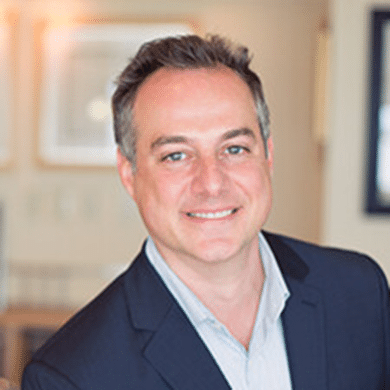California Institute for Women Lawsuit
Opened in 1952, the California Institute for Women, or CIW, is a women’s state prison located in Chino, California. Until 1987, it was the only prison for female felons in the state. This facility accommodates women at all custody levels, including those with special needs, such as pregnant inmates, those requiring psychiatric care, or individuals with complex medical conditions.
Attorneys that work with Police Brutality Center may be able to assist you.
"*" indicates required fields
Content Last Updated: February 2, 2026
Recent lawsuits have highlighted the alarming frequency of physical violence, sexual abuse, medical neglect, and psychological mistreatment that prisoners often face while in custody. Regardless of the reasons for their incarceration, inmates have the right to fair and humane treatment. Police Brutality Center connects survivors and their families to experienced civil rights attorneys with experience in prison abuse cases.
Notable Types of Abuse Cases at California Institute for Women (CIW)
Below is an overview of the alleged abuse reported at the California Institute for Women:
Sexual Abuse by Correctional Officers
In September 2024, the U.S. Department of Justice announced the opening of an investigation into the conditions at the California Institute for Women. The investigation aims to determine whether the CDCR failed to protect incarcerated women from sexual abuse.
According to the announcement, a civil lawsuit was filed on behalf of 21 women who were allegedly sexually abused while incarcerated at the CIW. The women in that suit asserted that correctional staff at the CIW sought sexual favors in exchange for contraband and privileges.
In February 2025, six women filed a lawsuit against the California Department of Corrections and Rehabilitation, or CDCR, claiming that CIW gynecologist Dr. Scott Lee sexually abused them at the CIW. According to news reports, the women allege that the abuse took place between 2016 and 2023. Prisoners allegedly brought numerous complaints against Lee, but they were ignored.
Physical Abuse and Mistreatment
In the lawsuit filed by the 21 incarcerated women, the prisoners alleged they experienced threats of violence, among other forms of abuse. They allege the threats and abuse violate their rights to be free from physical violence, the use of excessive force, and neglect.
Racial or Gender-Based Discrimination
Sexual violence is a form of sex discrimination under California law. The plaintiffs in the suit over abuse by Dr. Lee allege that the abuse was a “physical intrusion or physical invasion of a sexual nature under coercive conditions.”
Systemic Issues and Institutional Failures
In recent years, hundreds of incarcerated women have come forward in lawsuits alleging they were sexually abused and suffered other mistreatment at prison facilities in California, including the California Institute for Women. The following are examples of systemic issues reported at CIW and other California women’s prisons that have allowed abuse to persist for years:
- Inadequate oversight and investigation: In lawsuits against various California prisons, inmates have claimed their complaints of abuse were dismissed or ignored. The Associated Press reported that the former warden of the now shuttered federal correctional center in Dublin, California, was in charge of the legally required Prison Rape Elimination Act audit, but was also arrested in connection with his participation in prisoner abuse.
- Retaliation against inmates: Many inmates have claimed they did not immediately report abuse in fear of facing retaliation or punishment, or were threatened into silence.
- Prison Culture and Complicity: Patterns in prisoner reporting suggest that staff misconduct is often ignored or concealed. Prison culture at CIW may have fostered a climate of abuse, including staff complicity or indifference.
Resources and Support for Victims of Abuse at CIW
Numerous resources and support are available to victims of abuse at CIW, including legal assistance, counseling, and advocacy groups. Below are several organizations that assist abuse survivors:
Mental Health and Counseling Services
RAINN is an anti-sexual violence advocacy organization that provides a 24/7 national sexual assault hotline and support for survivors and their families.
The Women’s Prison Association is the oldest organization in the United States dedicated to supporting women and LGBTQIA+ individuals impacted by incarceration. This support includes access to clinical mental health counseling.
Prison Reform and Advocacy Groups
The National Police Accountability Project is a nonprofit organization dedicated to holding law enforcement accountable and promoting justice and accountability in policing. Their mission is to protect the civil and human rights of individuals in their encounters with law enforcement and to work towards the elimination of police misconduct and abuse.
The American Civil Liberties Union is a nonprofit organization that focuses on defending and preserving the civil rights and liberties guaranteed by the U.S. Constitution. Established in 1920, the ACLU works to ensure that all individuals have equal protection under the law and that their fundamental rights are upheld.
Legal Assistance
Prison Brutality Center connects survivors with knowledgeable prison abuse lawyers who can guide them through the legal process, help them file complaints, and represent them and their families in civil rights litigation.
Who Can You Sue in a Civil Abuse Case at the California Institute for Women?
Survivors might be entitled to a prison abuse lawsuit against the following parties:
- Abusers: The staff member or employee who committed the sexual abuse can be a defendant in the lawsuit.
- Supervisors and administrators: Prison wardens and other supervisors can be held liable if they were aware of the abuse and failed to take action, or if their conduct contributed to the abuse.
- Medical staff: Doctors or other medical staff who abused or neglected prisoners could be held liable.
- Prisons: Both private and government-run facilities might be held liable.
- Government entities: Government entities or agencies that oversee prisons, such as the CDCR or the Federal Bureau of Prisons, may be held liable.
Do I Have a Case?
Whether you have a viable case often depends on filing it in a timely manner to comply with the applicable statute of limitations. Missing these deadlines can result in the dismissal of your case.
In California, the statute of limitations for personal injury claims is generally two years from the date of the injury. However, sexual abuse claims have extended deadlines: adult victims can file within 10 years of the abuse or three years from the discovery of the injury.
Suing a government agency introduces additional requirements under the California Tort Claims Act. You must file an administrative claim within six months of the injury. If your claim is denied, you have an additional six months from the date the denial is mailed to file a lawsuit in court.
Because prison abuse cases come with strict deadlines and complex procedures, it is critical to consult an experienced civil rights lawyer as soon as possible. An attorney can evaluate your case, meet all filing deadlines, and develop the most effective legal strategy.
Connect With an Experienced Attorney
Police Brutality Center is proud to partner with Alex Straus, Chair of the Civil Rights Department at Milberg LLC, to help victims of civil rights abuses. Throughout his career, Mr. Straus has represented clients across the country in cases involving police misconduct, racial discrimination, and abuse in correctional facilities.

